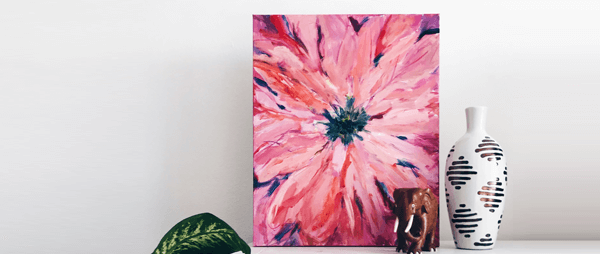At Fox Den Store-It you can rent a variety of sizes of units; they are secure and safe; there is personnel on site during business hours - 
but they are not climate controlled. Honestly, it would cost a lot more for you to use a storage unit if it was climate controlled and not everyone needs a climate-controlled unit. That being said, there are some items you just shouldn’t put in long-term storage, if they need to be in a climate-controlled environment. They can be stored for a short term and here’s some tips for keeping them safe.
Two very important things to remember, right from the start, plastic is not your friend. Use breathable materials like lightweight blankets or sheets to wrap around furniture and paintings. Plastic traps condensation (so moisture) on materials and that encourages mold growth as well as warping. That damp environment can also attract pests.
Air flow is important, too. Store items on pallets or 2 x 4 frames or even saw horses to keep them off the floor. Concrete wicks moisture.
Ways to Combat Moisture in Your Unit
Use silica gel packs or make your own. You can take two squares of fabric, sew or glue three sides, pour in the gel and then pin the fourth side.
Hang several bags inside your unit. The gel loses its absorption capacity over time, but, as we’ve said, storage units for items affected by humidity are only a short-term solution.
Charcoal can absorb moisture. Put them in a bucket lined with plastic or foil or put them out on a metal tray. Use plain old charcoal briquettes - not shaken in lighter fluid or with additives like hickory.
You can place an open bag of kitty litter in your unit or pour the litter in a bucket. Remember, all moisture-absorbing materials only absorb for so long and then they need to be replaced.
Storing Furniture, Make sure it is clean!
With wooden and even plastic furniture, cleaning is very important. Use a mild soap and water to clean plastic furniture and make sure it is 100% dry before you pack it in a storage unit.
For wooden furniture, use a wood cleaner to make sure you protect the existing finish. Something like Murphy’s Oil Soap is good.
Clean fabric seat cushions or couches with fabric or upholstery cleaner and make sure they are dry before they go into storage. Polish any metal areas with a polishing cloth and metal cleaner. That will remove any oxidation and also delay the build-up of tarnish.
Before moving your furniture into your storage unit, disassemble as much of it as you can. It will be easier to move, easier to pack in your unit and less likely to get scratched. Put all screws, bolts, clips, and any other small items that go with the furniture, in labeled baggies.
Cover everything, including the floor, so moisture does not seep from the floor into your furniture. Although it is recommended you not cover your furniture in plastic, you can tarp the floor with plastic sheeting. Use old sheets, blankets or drop clothes to cover your furniture. Loosely drape around items.
Protect glass and mirrors by wrapping with packing paper - but don’t tape on the glass or mirror because that will leave a residue.
Storing A Painting or Similar Artwork
A custom sized styrofoam box will protect artwork. Store the styrofoam box in another box that is as close to its size as possible. Fill any extra space with bubble wrap. Styrofoam peanuts will settle over time.
Do not stack boxed paintings and do not lean them against the wall. Store them flat on a pallet or rack and away from the doors or walls where there would be the most temperature change.
Organize While You Pack Your Unit
Don’t cram as much as you can into your unit. That’s a sure-fire way to dent, scratch and break items. Put the largest pieces in first and put boxes you will need and smaller items towards the front. Always leave aisles down the sides and across the back.
Fox Den Store-It staff will be happy to help you determine what size unit you may need. While they don’t have climate-controlled units, they are certainly suitable to store most items short-term and many items long-term.
Photo by Stephanie Harvey on Unsplash